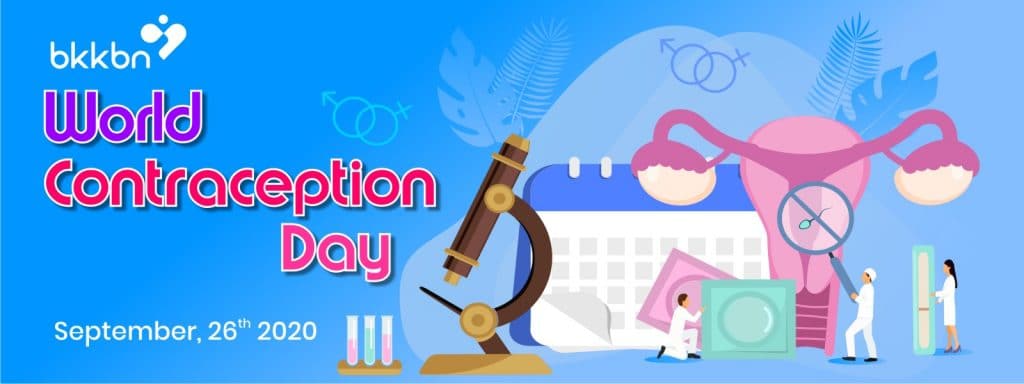
September 26 is marked as the World Contraception Day. It was launched in 2007 as a global campaign to improve awareness of contraception and enable young people to make informed choices on their sexual and reproductive health.
It is important to educate the community, especially women and couples in productive age, about family planning and contraceptive methods, so the wellbeing and autonomy of women is secured. Moreover, it will support the health and development of communities.
BKKBN has made a long history in National Development through the Population, Family Planning and Family Development program (KKBPK), which is now known as Bangga Kencana. For the last 40 years, this program has successfully lowered the birth rate from 5.6 babies per productive woman to 2.6 in 2012 and 2.4 in 2017. One of the main keys of this success is the provision of contraceptive services.
Contraceptive use is an important element of family planning to manifest a healthy reproductive life. Reproductive health is a state of complete physical, mental and social well-being and not merely the absence of disease or infirmity, in all matters relating to the reproductive system and to its functions and process. It implies that people are able to have a satisfying and safe sex life and that they have the capability to produce and the freedom to decide if, when and how often to do so.
A good reproductive health is both a cause and effect of a good life planning; if reproductive health can be maintained properly, the general quality of family life can also be improved.
The World Contraception Day (WCD) 2020 is an important momentum to straighten out public understanding about contraception as more than just a tool to prevent pregnancy, but also to create a healthy reproductive life in order to avoid unintended pregnancies as well as disease due to too young, too old, too close in gap, and too often pregnancies.
This is accompanied by efforts to increase a comprehensive understanding of the various types as well as the weakness and strengths of each contraceptive, to understand more which option is the best according to the needs and convenience. In addition, in-depth knowledge will help in eliminating the fear that rises due to myths and rumor about contraception, such as bleeding and weight gain.
There are 8 contraceptives available in Indonesia, namely Implant (one/two rods), IUD (Copper/LNG), Injection (Progestin/Combination), Pills (Progestin/Combination), Condoms, Vasectomy, Tubectomy, and Lactational Amenorrhea. All methods are highly effective depending on the validity period.